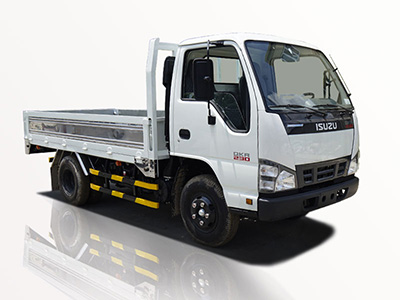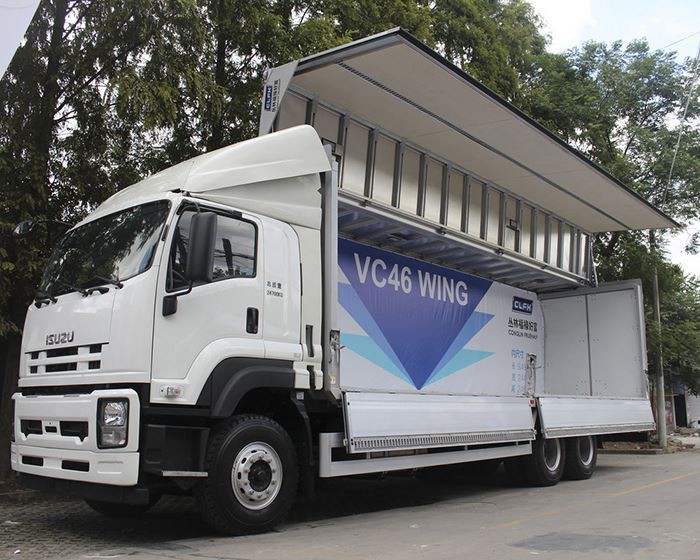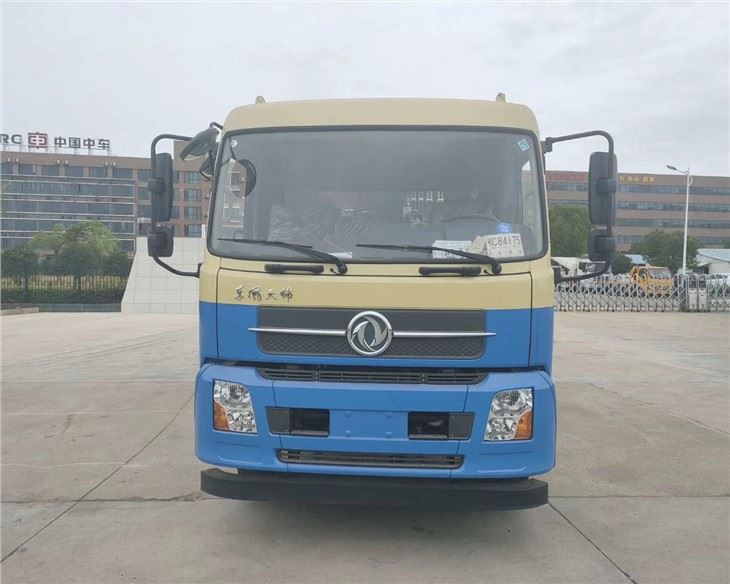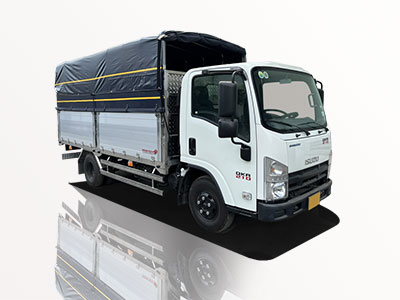Introduction
In the world of logistics and transportation, container trailers are essential for transporting goods efficiently. When it comes to container trailers, the “20 container trailer” specifically refers to trailers designed to carry 20-foot shipping containers. These trailers are invaluable in shipping, freight, and even construction industries. This article will explore everything you need to know about 20 container trailers, including types, benefits, specifications, and practical tips for choosing the right one. Whether you’re new to the logistics sector or looking to upgrade your existing fleet, this guide will provide comprehensive insights to assist you in making informed decisions.
What is a 20 Container Trailer?
A 20 container trailer is a specialized vehicle designed to transport 20-foot shipping containers. These trailers come in various designs and structures, varying mainly in weight capacity, type, and material. Understanding these characteristics will help you choose the right trailer for your needs.
Types of 20 Container Trailers
- Flatbed Trailers: These are open trailers that provide a flat surface, ideal for accommodating containers without side walls. They are versatile and can carry various loads aside from containers.
- Gooseneck Trailers: These trailers have a gooseneck hitch, allowing for increased maneuverability. They are commonly used for transporting heavy loads and are stable and easy to handle.
- Chassis Trailers: Specifically designed for carrying containers, chassis trailers are equipped with twist locks to secure the container in place, ensuring safety during transport.
Specifications of a 20 Container Trailer
When considering a 20 container trailer, it’s essential to understand its specifications. Here are some vital specifications to look out for:
| Specification | Details |
|---|---|
| Length | Approximately 20 feet |
| Width | 8.5 feet |
| Height | Approximately 4 to 5 feet |
| Weight Capacity | Typically between 30,000 to 40,000 lbs |
| Material | Steel or aluminum |
| Axles | Single or dual axle configurations |
Benefits of Using 20 Container Trailers
Utilizing a 20 container trailer offers several advantageous features that can enhance efficiency and safety in transportation.
Cost-Efficiency
20 container trailers can significantly reduce transportation costs due to their ability to carry standardized containers, making loading and unloading more efficient. This standardization leads to reduced handling times and associated labor costs.
Versatility
These trailers can transport various cargo types, including perishables, machinery, and less-than-container-load shipments. Their versatility makes them ideal for diverse logistic operations.
Improved Security
Containers are designed to be secure, which helps prevent theft and damage to the shipment. The compatibility of 20 container trailers with robust locking mechanisms enhances the safety of cargo during transport.
Ease of Handling
With their straightforward design, 20 container trailers are easier to couple with trucks and maneuver on the road. This ease enhances operational efficiency and minimizes the chances of accidents during loading and unloading.
Choosing the Right 20 Container Trailer
Selecting the ideal 20 container trailer involves considering various factors. Here are some tips on making the right choice:
Assess Your Needs
Understand your specific requirements, including the types of goods you usually transport, the distances involved, and regulations that may apply to your industry. This assessment will guide you in choosing a trailer that suits your operational needs.
Evaluate the Weight Capacity
Choosing a trailer with the appropriate weight capacity is crucial. Overloading can lead to accidents, damage to the trailer, and costly fines. Make sure to choose a trailer that meets or exceeds your expected load.
Consider Tire Types and Axles
Different terrain and load types may require specific tire types. Heavy-duty tires are essential for cargo transport, while lighter loads may not necessitate as robust options. Likewise, consider whether a single or dual-axle configuration suits your needs better.
Durability and Maintenance
Evaluate the durability of the trailer material. Steel trailers may be more robust, while aluminum may be lighter and resistant to rust. Analyze your operating environment and choose a material that can withstand it.
Common Uses for 20 Container Trailers
20 container trailers serve a wide variety of industries and applications. Below are some common uses:
Shipping and Logistics
They are prevalent in shipping and logistics for transporting goods across regions, especially in ports and rail yards where shipping containers are commonplace.
Construction Sites
Construction companies use 20 container trailers to transport construction materials like bricks, steel, and machinery, optimizing workflow and project delivery schedules.
Storage Solutions
When modified adequately, 20-foot containers can serve as on-site storage units, providing secure and efficient storage solutions for businesses in various sectors.
Practical Examples of 20 Container Trailer Uses
Understanding practical applications can help illustrate the utility of 20 container trailers. Here are a few examples:
Case Study 1: Transportation of Electronics
A logistics company frequently transports electronics from manufacturers to distributors. Using a 20 container trailer equipped with temperature control, the company ensures that delicate items are not exposed to extreme temperatures during transport.
Case Study 2: Construction and Heavy Equipment Transport
A construction firm uses a 20 container trailer to transport heavy machinery and materials to job sites. They find that the gooseneck trailer configuration allows for better maneuverability at construction sites, enhancing productivity.
Case Study 3: Mobile Storage for Events
Event organizers frequently use 20 container trailers for mobile storage solutions during large outdoor events, securely storing equipment and merchandise right on-site.
Legal Considerations for Using 20 Container Trailers
Operating 20 container trailers comes with specific legal considerations that transport companies must address.
Weight Limits
Different regions have established legal weight limits for transporting trailers. It is vital to be aware of weight restrictions and comply to avoid fines and ensure road safety.
Licensing and Permits
Ensure that your drivers possess the proper licenses and that you acquire any necessary permits for transporting commercial loads. This regulation varies significantly across states and countries.
Insurance Requirements
Check with your insurance provider to ensure you have adequate coverage for cargo and the trailer itself, protecting against potential damages and liabilities.
Maintenance Tips for 20 Container Trailers
Regular maintenance is crucial for the longevity and safety of your 20 container trailer. Here are some essential maintenance tips:
Regular Inspections
Conduct routine inspections to check tires, brakes, lights, and connections. A comprehensive inspection should ideally happen before any long trips to ensure everything is functioning correctly.
Cleaning and Rust Prevention
Regularly clean your trailer to prevent rust and damage from corrosive materials. Consider applying protective coatings to metal parts to enhance durability.
Tire Maintenance
Maintain proper tire pressure according to the manufacturer’s guidelines. Regularly check tires for wear and tear and replace them when necessary to ensure optimal safety and performance.
FAQs About 20 Container Trailers
1. What is the average cost of a 20 container trailer?
The average cost of a 20 container trailer can vary greatly, typically ranging from $3,000 to $15,000, depending on the type, specifications, and brand.
2. Can I use a 20 container trailer for other shipping container sizes?
While primarily designed for 20-foot containers, some trailers can accommodate 40-foot containers with the appropriate equipment. Always check the specifications of the trailer.
3. Are 20 container trailers easy to maintain?
Yes, 20 container trailers have relatively simple designs and maintenance requirements, making them easy to service with regular inspections and upkeep.
4. How do I secure a container on the trailer?
Containers typically have corner castings that fit into twist locks on the trailer. Ensure the container is properly seated and locked before transport to prevent movement.
5. What type of truck is compatible with a 20 container trailer?
Most standard trucks with the appropriate towing capacity, such as flatbed trucks, can pull a 20 container trailer. Check manufacturer specifications for compatibility.
6. Can I rent a 20 container trailer?
Yes, many logistics and rental companies offer 20 container trailers for rent, providing flexibility for businesses needing temporary transport solutions.



